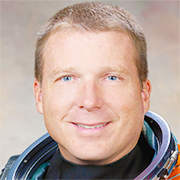U.S. Spacewalks To Take Place Starting Feb. 20
By Space Coast Daily // February 18, 2015
will prepare cables and communications gear

NASA.gov — Two NASA astronauts from the International Space Station’s Expedition 42 crew will venture outside the orbital complex on Friday, Feb. 20; Tuesday, Feb. 24; and Sunday, March 1.
 They will prepare cables and communications gear for new docking ports that will allow future crews launched from Florida on U.S. commercial spacecraft to dock to the space station.
They will prepare cables and communications gear for new docking ports that will allow future crews launched from Florida on U.S. commercial spacecraft to dock to the space station.
Expedition 42 Commander Barry Wilmore and Flight Engineer Terry Virts will exit the station from the Quest airlock for each of the three spacewalks around 7:10 a.m.
Coverage of the approximately six-and-a-half hour spacewalks will begin at 6 a.m. on Friday Feb. 20.


Built by Boeing under contract to NASA, the International Docking Adapters are a critical component of the station’s reconfiguration to ensure long-term docking ports for future commercial crew and other visiting spacecraft.
They will permit the standard station crew size to grow from six to seven, potentially doubling the amount of time devoted to research aboard the orbiting laboratory.
The two new docking adapters will be launched to the station on a pair of SpaceX Dragon cargo spacecraft this year.
Astronauts will install the first of two adapters on Pressurized Mating Adapter-2 on the forward end of the station’s Harmony module during a future spacewalk.
The second adapter will be installed on Pressurized Mating Adapter-3 after it is relocated robotically to the space-facing port of Harmony later this year.
The spacewalks will be the 185th, 186th and 187th in support of space station assembly and maintenance. Wilmore has conducted one spacewalk in his career last October. The spacewalks will be the first of Virts’ career.
BELOW VIDEO: International Space Station Exp. 42 crew members Barry Wilmore, Alexander Samokutyaev, Elena Serova, Terry Virts, Anton Shkaplerov and Samantha Cristoforetti discuss their personal histories and their reasons for dedicating their careers to space exploration.













